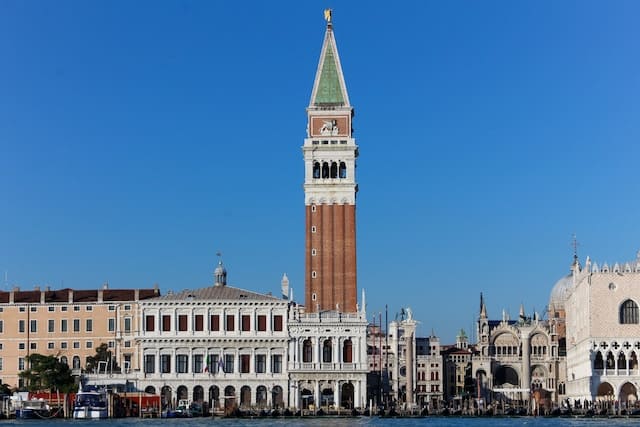Articles
Three Models of Transformative Law
Transformative Law Encounters In a previous post on the Transformative Private Law Blog, Martijn Hesselink calls “the idea of transformative private law a little scary”. The intuitive reason for Hesselink to be scared seems [...]
Embedding checks and balances in steward ownership: The case of OpenAI
On November 17, OpenAI’s CEO Sam Altman was fired by the board of directors of OpenAI. Speculations about what happened suggest that there was a separation in the company between the commercially-minded Altman on [...]
Industrial Policy for a Sustainable European Economy: Toward Ownership that Works for People
The text below was drafted as the conclusions of the Conference “Transformative Ownership in Times of Overlapping Crisis”, held in Amsterdam, 5-6 October 2023. We are preparing a longer white paper on the basis of [...]
Critical approaches in EU law – still a blindspot.
Why is the space for critical legal engagements within EU law so narrow, almost non-existant? Critical legal engagements openly question the underpinnings of EU legal thinking showing how its inner logics reproduce various forms of [...]
Urban commons, from Italy to Europe
What should we do with abandoned spaces and facilities in the outskirts of our cities? How can we recover such spaces, while at the same time strengthening social cohesion in our neighbourhoods and citizens’ [...]
Legal innovation to empower the disempowered in service of a sustainable city
Amsterdam’s vision of becoming a sustainable city We have been fascinated by two small bottom-up initiatives in and around Amsterdam: the Community Land Trust in Amsterdam South-East and the so-called Zoöp. In a recent [...]
Positive Sustainable Obligations in Property Law
When it comes to living within our planetary boundaries, land use is incredibly important. Not only do industry and agriculture significantly contribute to climate change, also construction of homes and the way in which these [...]
Academic freedom and the perils of the employment contract in managerial universities – time for action
According to a recent study for the European Parliament, academic freedom in the Netherlands is under pressure. The report, which drew some attention in the Dutch debate, identifies three main sources of pressure: “developments in [...]
Sustainability and advertising: from consumer choice to consumer habits
Can Shell claim to be the Netherlands’ largest investor in green energy in its advertisements? At the start of this month a new Code on Sustainability Advertisement was adopted by the Dutch Advertising Code Committee [...]
The Transfer of Ownership in the ‘Patagonia Case’: Tax Avoidance or a Step toward a Non-Extractive Economy?
This blog was featured earlier on the Verfassungsblog. September 15th 2022 was a big day for the climate movement. The owner of Patagonia – a large multinational corporation producing wearables – transferred 98% of his [...]
Levelling the playing field: making the BVm viable
This blog was featured earlier on the N-EXTLAW project website Since first bursting on the scene in Italy in the late 1980s, the notion of the 'social enterprise' has spread to nearly every corner [...]
Personalised standard terms? Or, the transformations we didn’t know we didn’t really need
Introduction Algorithm-enabled “personalisation” is a hot topic in legal scholarship. In recent times, “personalised law” has been the subject of books (like this and this), a conference culminating in a high-level online symposium and numerous [...]
Making banks care about the future: transition risk management as a regulatory technique
Since the 2015 Paris Agreement recognised the role of capital flows in climate change mitigation, EU regulations have sought to harness finance to achieve climate neutrality by 2050. New laws inter alia created a common [...]
Time to Dial the Arbitrators
The dispute settlement mechanism of the Energy Charter Treaty (‘ECT’) has been proving to be an obstacle for States in their quest to meet climate obligations. The ECT aims to ensure the protection of investments [...]
Symposium: The Gender Politics of Global Law
The work of turning ‘the economy’; ‘the political’ and ‘global law’ from a priori concepts into questions is a critical one for our time, as these forms have come to dominate so much of how [...]
Symposium: Towards a Sustainable Global Economic Law: Constituting the Economic
Who defines economy and value in international law? Who is left out? And what are the implications for social and environmental justice? A useful starting point may be to acknowledge that people value different [...]
Symposium: The Concept of Value Practices for International Law
In our discussion about sustainable global economic law last December, Matt Canfield asked us several questions to guide our conversation. We reproduce them to structure our contribution here, which we offer as a dialogue [...]
Symposium: Fair Trade and the Neoliberal “Social”
Our conference organizers venture that “in pursuing sustainable global economic law, the question of how we construct and identify the ‘economic’ is critical.” We suggest that one element of this critical question is how [...]
Symposium: Introduction – Constituting the “economic”
In pursuing sustainable global economic law, the question of how we construct and identify the “economic” is critical. Anthropologists, sociologists, historians, and scholars of science and technology studies have approached the formation of what [...]
Symposium: Environmental Justice and law
On the basis of my work in three projects (co-chairing UNEP’s Global Environment Outlook-6, co-chairing Future Earth’s Earth Commission, and my Advanced Grant on Climate Change and Fossil Fuels), I have three critical messages [...]
Symposium: Global Law: Sustaining accumulation, constraining ecological protection?
The concept of sustainability, or sustainable development, articulated in the 1987 Brundtland Report has, since the 1992 UN Conference on Environment and Development, legitimated what Steven Bernside calls the ‘compromise of liberal environmentalism’.[1] This [...]
Symposium: Introduction – The Politics of Sustainability
In these two blogs, Julia Dehm and Joyeeta Gupta engage the questions of sustainability and environmental justice in contemporary global legal governance. In their blogs we see a common concern with the dominant position [...]
Symposium: Towards a Sustainable Global Economic Law: Shifts, Ruptures and Social Justice
What might a ‘Sustainable Global Economic Law’ (SGEL) look like, in a context of accelerating ecological degradation, wild levels of inequality and wealth concentration, continuous technological disruption and strong demands for environmental and social [...]
The Nature of Comparing
What do you think about when someone mentions the US State of Louisiana? Mardi gras, hurricanes, jazz and a Sazerac cocktail? Ask a comparative lawyer and they may respond that Louisiana is a Mixed Legal [...]
Frenzy of the Streets: The Radical Aspirations of Justifying Contract in Europe
A comment on the ACT Book Symposium of 30 September 2021 On 30 September 2021, the Amsterdam Centre for Transformative Private Law hosted and organised a book symposium around Martijn Hesselink’s recent book Justifying [...]
Raworth’s Doughnut as a Compass for a Sustainable City? Lessons from the SUSA Initiative
In its Circular Strategy 2020-2025, Amsterdam relies on the Amsterdam City Doughnut developed by the British economist Kate Raworth. The model depicts an economy where societies and businesses contribute to economic development while respecting [...]
The shifting contours of property: ‘social function’ in the neoliberal era
‘Property', Alexis de Tocqueville wrote on the eve of the uprisings that shook Europe in 1848, ‘will be the great battlefield’. As the long shadow of the French Revolution sealed the demise of the [...]
Reimagining Extractive Capitalism: Learning from Italy’s Banca di Credito Cooperativo
The paradigm of contemporary business is extractive; it is oriented towards generating large profit margins from energy, resources, money, personal data, labour, health and well-being. Extractive capitalism presents us with a particular mentality in [...]
Thinking Infrastructurally About the Law of Multinational Corporations
“If the program of Realists was to lift the veil of legal form to reveal living essences of power and need, the program of the Critics is to lift the veil of power and [...]
Lessons about Lender Liability from Brazil
The recent use of the Lender Liability regime in Brazil by public prosecution can bring fresh ideas for Dutch lawmakers who want tighter controls over investment in socio-environmentally sensible activities. Public prosecutors use this [...]
Friends of the Earth Netherlands versus Royal Dutch Shell: All companies must act against climate change
The 26th of May 2021, the Court of First Instance of The Hague rendered a ground-breaking judgment in a climate case against the oil giant Royal Dutch Shell (RDS).[2] The Court ruled that RDS has [...]
Responsible or just compliant business conduct? On open norms and the example of ARISA v C&A
In his blog post summarizing the contents of the new Dutch Responsible Business Conduct strategy, Jurrien van Rees writes on the difficulties of turning due diligence into binding legal provisions:Due diligence should be appropriate to [...]
Down the rabbit hole of unequal opportunities: Achbita and the way out
Non-discrimination: Transformative contract law? From a broad social perspective, non-discrimination law is arguably the area of private law with the most sweeping transformative ambitions. This is reflected in the introduction to the EU’s Framework directive [...]
Sustainable Corporate Governance: The Role of the Law
One way to look at sustainable finance is through the lenses of corporate governance. 100 large companies worldwide are responsible for 71% of Greenhouse Gas emissions (GHGs). About one third of these are publicly held [...]
Responsible Business Conduct: Challenges and Opportunities
Responsible business conduct (RBC) is here to stay. There is a clear trend towards more binding RBC measures. Some countries have introduced thematic or sectoral due diligence legislation for specific RBC themes, such as forced [...]
Data as Counter-Performance and Transformative Contract Law
Within the framework of Transformative Private Law, a leading role must necessarily be recognized for Contract Law, traditionally both a receptor for social demands and an engine of economic innovations in an unceasing circular process. [...]
Transformative Property Law
Property’s transformative nature: Space mining, Airbnb, and Apartheid For the last few years, a new, innovative business model has been on the rise. It is called ‘space mining’ – digging for valuable resources in asteroids [...]
Unboxing Transformative Private Law
Private law is tasked with two antagonistic missions in modern society; that is to facilitate steady ordering while allowing for openness and the autonomous pursuit of highly pluralistic life plans. The solution to the [...]
The transformative role of courts in European private law
When we talk about transformative private law, an important question we should ask is: who are the drivers of transformation – private parties, legal scholars, legislatures, or the EU? This blog post revolves around [...]
Transformative Private Law as a Resource to Overcome Regulatory Shortcomings in the European Digital Market
Much debate arose regarding the role that private law is supposed to serve in the digital environment: the widespread of new technologies is almost unanimously understood as posing significant challenges to traditional concepts of law, [...]
The Transformative Private Law Blog: An Introduction
After months of hard work and preparation we welcome you to the Transformative Private Law blog. The transformative private law blog sets out to be a platform for the discussion, debating and (re)thinking of the [...]
The Idea of Transformative Private Law
During the recent Launch event of the Amsterdam Center for Transformative Private Law, we discussed the concept of Transformative Private Law. In what follows, I present the concept both as an analytical/critical project as well [...]
The Idea of Transformative Private Law: some critical observations
The transformation of the centre The recent transformation of the centre has been truly impressive. It was an excellent idea to widen horizons and pursue new themes. Moreover, the new mission statement is strong, ambitious [...]
Reflections on Transformative Private Law
What is the meaning of ‘transformative private law’? Or what does membership of a research group that has chosen this name entail? Here are some reflections of a member of the newly launched Amsterdam Centre [...]
Transformative Law in a Digital World from a Contract Law Perspective
On Valentine’s day, the Amsterdam Centre for Transformative Law (Act) was launched at the Universiteit van Amsterdam. According to its Mission Statement, it focuses on ‘the role of private law in the making of society, as well [...]




































